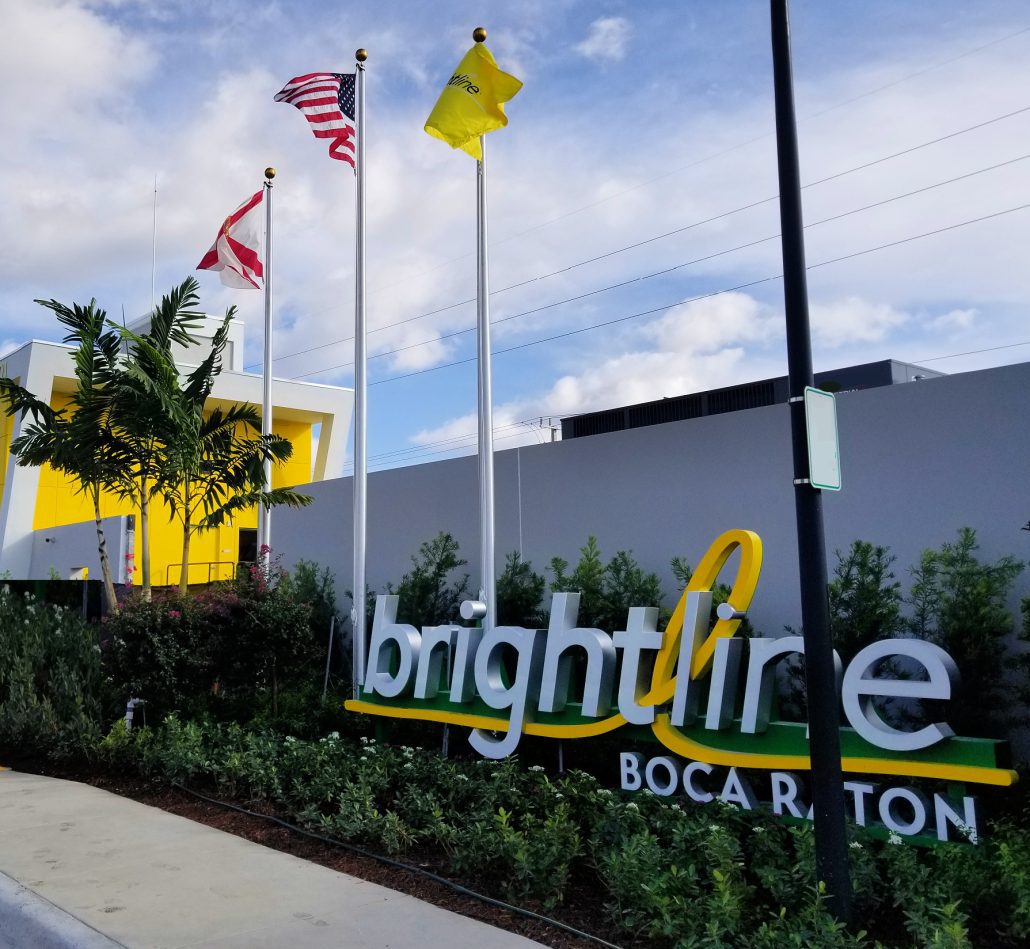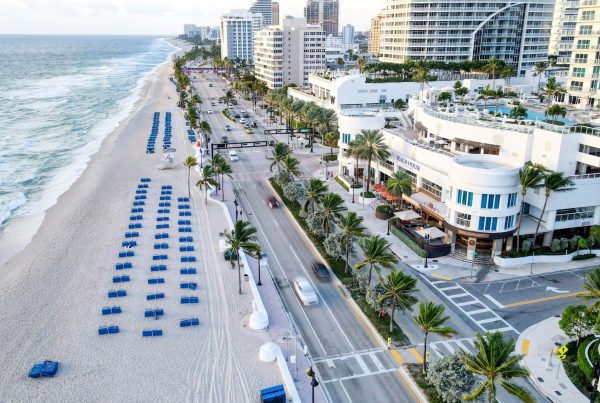Brightline just threw Boca Raton a curveball.
This week, the company announced that it would end the discounted monthly passes that have been popular with regular riders, who tend to be commuters. Instead, Brightline will prioritize its higher-profit service to Orlando.
That’s not all. Brightline has begun cutting the numbers of seats on trains that serve its five South Florida stations in Boca Raton, West Palm Beach, Fort Lauderdale, Aventura and Miami.
Though Brightline will add cars this summer, a representative stressed that the company’s focus will remain on the South Florida-Orlando market. The representative told the Sun Sentinel that while he is “empathetic” toward local riders, moving people between “Central Florida and South Florida” is “what the business was set up to do.”
My first thought: A delegation from what then was called All Aboard Florida came to The Palm Beach Post in 2012, when I was editorial page editor, to pitch the return of private rail service. I recall much emphasis on serving South Florida, not just Orlando. So, I question the idea that this transition is expected.
My second thought: Brightline’s decision raises big questions for Boca Raton. It undercuts key points city council members made when they approved $10 million toward construction of the parking garage that serves the station, which opened in late 2022.
Council members justified that expense by saying that the station would bring people to Boca Raton for everything from dinner to a day at Mizner Park. Though the station would make Brightline travel more convenient for residents, the pitch was that it would be a “game-changer” for the city’s economy.
Boca Raton officials have been so confident of this return on investment that the city is seeking a consultant to study creation of a new zoning category called Transit Oriented Development (TOD) near the station. It would be part of the plan to redevelop the area around City Hall.
The Transit Oriented Development Institute defines such neighborhoods as “compact, walkable, pedestrian-oriented, mixed-use communities centered around high-quality train systems.” TOD developers market their products to regular train riders who want to be less dependent on cars.

Brightline certainly is “high-quality.” As the company has made clear, though, it is not primarily a commuter service marketed to regular, local riders.
Council member Marc Wigder was not on the council that approved the $10 million. Like his colleagues, though, Wigder has prioritized downtown mobility, often citing the Brightline station.
The company’s decision is “concerning,” Wigder said Wednesday. Could the city still justify centering that new downtown campus around the station? “I’m not sure.”
Wigder has heard from confused and angry Brightline riders. “They did a pilot program that worked,” Wigder said of the monthly passes. “Why would you bag it?”
No evidence, anecdotal or otherwise, has emerged to show that the Boca Raton station is bringing people to the city who would not otherwise have come. The company does not break down ridership by station. The city relied on Brightline’s marketing research before approving the $10 million.
The Brightline representative acknowledged that discussion would continue about the years-long idea of a commuter line—known as the Coastal Link—along the Florida East Coast Railway tracks that Brightline uses. But any such service remains many years off—if it’s even possible.
One key element is a bridge or tunnel at the New River in Fort Lauderdale. The city and Broward County are at odds over which it would be. Either way, there is no money for what would be a very expensive project.
Meanwhile, the cheaper Tri-Rail continues to be most commuters’ preferred option. Wigder said the city will keep working on how to redevelop the City Hall campus, but the approach may change. Perhaps any TOD, he said, should be around the Tri-Rail station at Interstate 95 and Yamato Road.
As for the Brightline station, it looks for the moment less like a “game-changer” and more like a pricey amenity.
Frank Barbieri’s last hurrah on the school board

Frank Barbieri’s 16 years on the Palm Beach County School Board will end in November, after he decided not to run for a fifth term. But Barbieri told me Wednesday that he had secured money for one final, long-delayed project.
That would be renovation of what Barbieri called “the fieldhouse” at Boca Raton High School, meaning the locker room. According to Barbieri, when the school was rebuilt, there wasn’t money for the fieldhouse after completing the pool.
Barbieri said he spoke with Superintendent Mike Burke and got approval for $800,000 to finish the project. “That’s the last thing I told the kids,” Barbieri said. “That it would get done. The kids need someplace to be safe.”
Delray Beach Commission discusses speed cameras at schools

Speaking of children and safety, Delray Beach City Commissioner Juli Casale wants her colleagues to “reconsider” the deployment of speed cameras in school zones.
The previous commission approved the program, 3-2, after hearing from police department representatives that it would be more efficient than assigning officers. Though cities and counties no longer can use traffic cameras in most areas, the Legislature allowed their use in school zones.
During Tuesday’s meeting, Casale cited the case of a driver in a “beat-up vehicle” advertising a power washing business who was “begging” the police officer not to issue a ticket. Casale also said, incorrectly, that the fines are three times the normal cost for a speeding ticket.
Deputy Vice Mayor Rob Long, who voted in favor of the program, responded correctly that the maximum fine will be $100, which is far less than the fine for speeding outside of a school zone.
Mayor Tom Carney also sounded reluctant to change. If the cameras came out and someone “hit a kid,” Carney said, he wouldn’t want to think that he had been partly responsible. “I always slow down” around schools, “And I’m always late.”
Damara Cohn appointed to DDA
Speaking of Delray Beach, the commission unanimously approved the appointment of Realtor Damara Cohn to the board of the Downtown Development Authority. Cohn replaces Rick Burgess, whom the commission removed last month.
After the approval, Thomas Markert complained that he had too little information about the two applicants, a problem that he sees with all board appointments. As discussion proceeded on how to have commissioners better informed, City Attorney Lynn Gelin noted that Boca Raton asks all applicants to appear before the city council to take questions.
As a result, the city may ask all applicants to appear at a workshop meeting for any questioning. Markert is correct that the application forms alone provide little help.
Boca Bash litterbugs charged

Two teenagers charged with throwing trash into the ocean after Boca Bash turned themselves in. Their ages are 15 and 16, meaning that as juveniles their names will not become public unless they are charged as adults.
The boys could face third-degree felony charges for causing pollution. They dumped large trash bins after the boat cleared the Boca Raton Inlet. Third-degree felony convictions can carry a sentence of five years.
The arrests were among 20 that the Florida Fish and Wildlife Conservation Commission made after the annual, unsanctioned event on Lake Boca. Prosecutors have 30 days to decide how to handle the cases.







